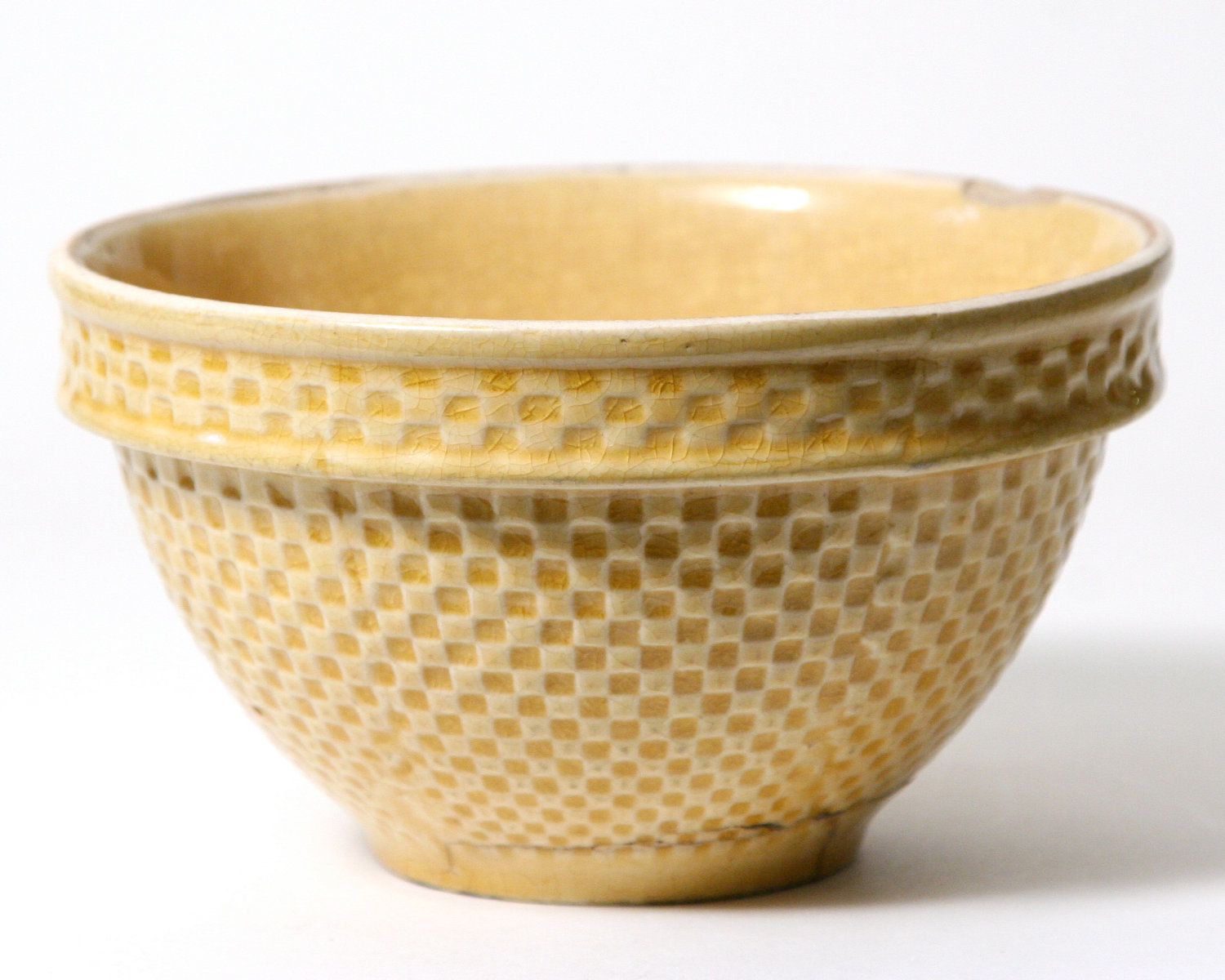Proper 4.B.18
2 Corinthians 4:5-12
The Rev. Melanie McCarley
There was a woman who was the proud owner of a modern kitchen in every respect—laminate cabinets, stainless steel appliances, the latest in lighting and gadgetry. Yet sitting on the countertop of this decorator testament to modern-day efficiency and technology there was an old yellow-ware ceramic bowl. Its outer lip was chipped, the glaze was nicked in some places. Pretty, it was not. A fashionable antique—hardly. If placed upon an auction block, its imperfections would have relegated it to the trash heap. It wasn’t worth a dime. Yet, there it was, placed on the gleaming surface of a marble countertop in front of a newly minted backsplash of glass tile—as though it were a piece of curated art.
The bowl merited a question. It was, as it turned out, a family heirloom—belonging to a great grandmother. Of all the possessions handed down in that family, it was that clunky, unfashionable bowl with the chip in the side that was the prize. Turns out, that bowl, from the time it was made until the present moment, had assisted in the creation of thousands of meals—and if the words of the family were to be believed—everything that was made in it tasted better than if it were made in anything else.
In the Epistle lesson for today St. Paul writes: “But we have this treasure in clay jars, so that it may be made clear that this extraordinary power belongs to God and does not come from us.”
Bear in mind what Paul is telling us in this passage. Many translations render the word “jars” as “vessels”. We, then, are clay vessels—jars, bowls or pots; whatever we are called—it is far from glamorous. We are made from clay—more commonly known as dirt, the dust of the earth. We are not carved from granite, marble or alabaster. We are not molded from gold or silver. And what’s more, we are prone to cracks and chips.
Before you begin to feel poorly about this, consider the following. You and myself, we are intended to be utilitarian, useful. God didn’t make us to sit around looking pretty. God made us for a purpose. Vessels of all kinds—they’re meant to hold something. Whether you’re a water bucket, a pickle jar or a mixing bowl, you have been created for a larger purpose—and that is to be filled, to hold whatever it is that is placed inside you.
And, what’s more—Paul tells us, it’s what’s inside you—it’s what you’re holding—that’s the treasure. That is what’s fundamentally important to your identity. Take a moment to think about that. If you are a water bucket in a well—your job is fundamentally important. Why? Because water is a treasure. Ask anyone in the desert if they would disagree. If you are a jar carrying a vaccine that would heal people of a great and dread illness, your job would be important indeed. And if you are bowl filled with the goodness of a meal for a family, your task would be precious.
How does this translate to our lives of faith? Consider this. Our bodies—they, like clay vessels, are imperfect. They crack and chip. Joints go arthritic, wrinkles appear, we get sick, we slow down. Sometimes we break—mentally and physically. Ultimately, St. Paul tells us, none of this is as important, as what we are carrying inside: the Spirit of God, the love of Christ, the hope of the world. In other words—whatever damage there might be to us—the clay vessel—we are not to worry, because all that does is give an opportunity for others to get a better glimpse of the treasure we are carrying. In other words, cracked pots and chipped bowls, they are all part of God’s plan. God makes use of cracked pots. In fact, you might even go so far as to say that the cracked pots are even more useful than the ones with no blemishes at all. This is because everyone can see the Treasure—catching glimpses of God’s grace through the cracks. They are what lets the light of God seep through!
Now, all of this talk of cracked pots leads me to---well, today, and the commissioning of the pilgrims going on the Camino, the issuing of a heart-felt “Thank you” to our Sunday School teachers; the gift of Bibles to our Fifth Graders and the recognition of those who are about to be Confirmed. Not all of them are cracked pots at this point in time—but, with God’s grace, they’ll get there.
Remember that chipped bowl sitting on the marble countertop. Recall that it was a family heirloom. It was valued, not because it was beautiful, certainly not because it was worth any amount of money—but because of what it held all those years—and continued that it continued to carry up until the present day. It wasn’t the flour, the eggs, milk, butter or salt that lent it the legacy it carried. Not at all. It was something else entirely. It was love. You see, that bowl was filled to overflowing with the love of all the hands that made those meals over the years. May we be the same kind of vessels as well—cracked pots and chipped bowls, overflowing with the love of our Creator. In Jesus’ name. Amen.
